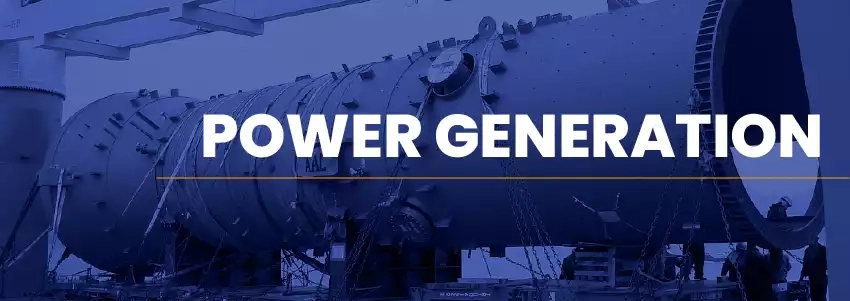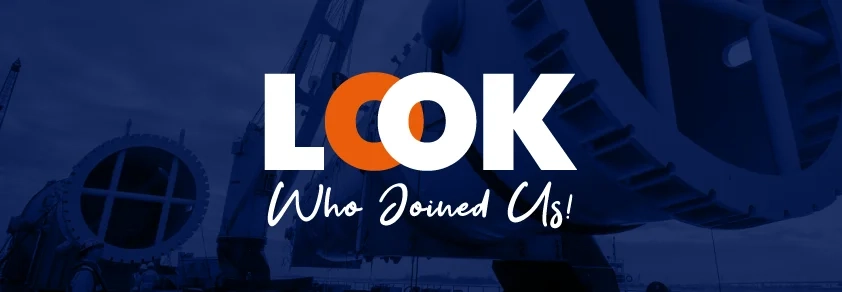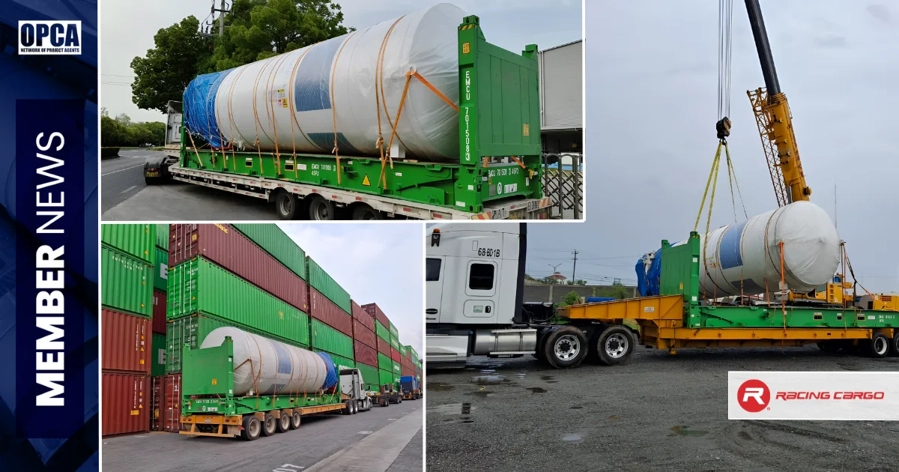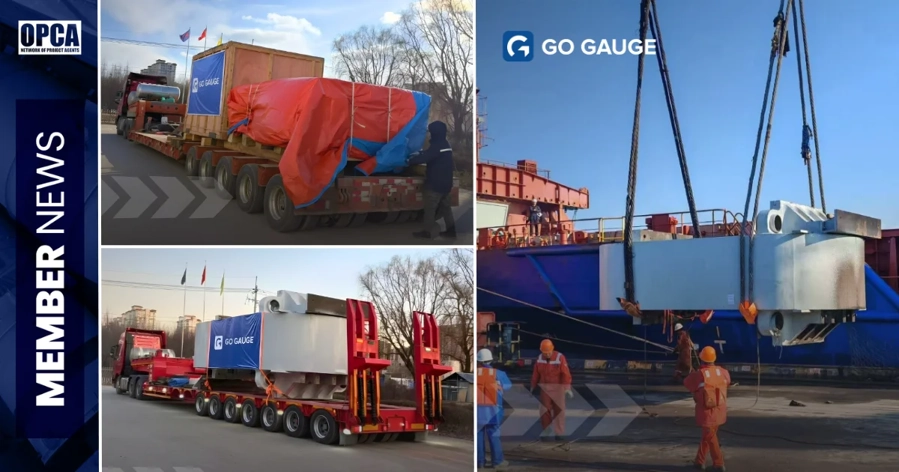Power Generation and Project Cargo Freight Forwarders
Power generation projects, whether driven by fossil fuels, nuclear energy, or renewable resources like solar, wind, and hydropower, involve the transport of large, heavy, and often oversized equipment. This complicated process requires a highly specialized logistics partner. In this article, we explore the critical role of power generation freight forwarders, particularly those in the Overseas Project Cargo Association (OPCA) network, and provide key insights into the logistics behind shipping power generation equipment globally.
List of Power Generation Forwarders in OPCA
OPCA members are highly experienced in handling the intricate logistics of power generation projects. With expertise in all shipping modes—air, sea, rail, and land—our network of forwarders provides tailored solutions for transporting large-scale equipment. The members of OPCA specialize in transporting essential power generation equipment such as turbines, electrical transformers, and construction machinery. From initial planning to final delivery, our freight forwarders manage every step of the process for customers in heavy industry, exporters and importers. Leading companies within OPCA offer decades of experience in heavy machinery transport, with logistics teams who are always on-call.
Join OPCA's Power Generation Freight Network!
Joining the OPCA network provides freight forwarders with invaluable access to a global support system. Our network offers an integrated approach to logistics, combining years of industry experience with a wide range of shipping capabilities. As a member, you gain access to an extensive partner network that can help you manage complex power generation freight, from route planning to secure delivery of oversized cargo.
Being part of OPCA allows freight forwarders to build connections with other industry leaders and gain insights into the latest transportation technologies and best practices. This collaboration helps you to optimize your service offerings, ensuring timely and safe delivery of power generation equipment—no matter the size or complexity.
Compare Power Generation Freight Forwarders
When selecting a power generation freight forwarder, there are a few key factors to consider:
Specialization and Experience: Not all freight forwarders are equipped to handle large, heavy, and oversized cargo like power generation equipment. Some companies specialize in thermal energy generation equipment transport and have proven track records in these projects. The OPCA’s freight members directory help you to choose right freight agents for your business.
Transport Modes and Routes: Forwarders should offer expertise in utilizing diverse transport modes, such as specialized flat-rack containers for sea freight, heavy-duty trailers for land transport, or airfreight for urgent shipments. Additionally, the ability to adapt transport routes for oversized cargo—whether it's removing traffic lights or modifying roads—ensures the safe transport of power generation equipment across challenging locations.
Global Network and Coordination: For international shipments, the member companies leverage a global network of partners and local authorities to secure all necessary permissions and manage customs clearance. The seamless coordination across international borders is vital for the success of global power generation projects.
Customer Service and Transparency: Leading power generation freight forwarders offer transparent cost structures, real-time tracking, and proactive communication. This ensures that clients are informed at every stage of the project, reducing delays and preventing costly issues.
By comparing these factors and working with OPCA members, companies can find the right freight agents to handle their unique power generation logistics needs.
The Role of Power Generation in Global Trade
Power generation plays an increasingly vital role in global trade, particularly as the world transitions to cleaner energy sources. Renewable energy technologies like wind, solar, and hydroelectric power are driving the need for specialized logistics solutions to transport large equipment such as wind turbines, solar panels, and generators. This trend has opened up new opportunities for power generation freight forwarders.
For instance, global demand for wind energy has been expanding at an average rate of 40% annually, with large wind farms generating substantial amounts of power. Moving these massive components requires precise logistics management, as turbines can reach up to 1.7 MW or more. Similarly, solar energy infrastructure projects rely on the transport of large solar panels and batteries across the globe, from manufacturing sites to installation locations.
In addition to renewables, traditional power generation technologies such as fossil fuels and nuclear energy remain essential in meeting the world’s energy needs. For example, nuclear power plants require specialized equipment like steam turbines and reactors, which must be shipped safely and efficiently. Freight forwarders involved in power generation logistics play a key role in ensuring the uninterrupted supply of equipment for these critical infrastructure projects.
Through the effective transport of power generation equipment, freight forwarders contribute to the success of global projects, supporting both traditional and emerging energy markets worldwide.
Frequently Asked Questions (FAQs) About Power Generation Shipments
What types of equipment are involved in power generation logistics?
Power generation logistics involves the transport of various types of oversized equipment, including electrical transformers, turbines, generators, and heavy construction machinery. These items often require specialized handling, transportation, and packaging to ensure their safety during transit.
Why is specialized logistics necessary for power generation projects?
Power generation projects typically involve the transportation of large, heavy, and sensitive equipment that cannot be handled using standard shipping modes. Specialized logistics ensure that the equipment arrives at its destination safely, on time, and within budget, minimizing risks and delays.
How do OPCA freight forwarders handle international power generation shipments?
OPCA members have extensive experience in managing international power generation shipments. They coordinate with local authorities, secure permits, and adapt transportation routes for oversized cargo, ensuring smooth and efficient cross-border deliveries.
How do renewable energy transport impact power generation logistics?
Renewable energy transport, such as wind and solar farms, require the transport of large equipment like turbines, solar panels, and batteries. This has led to an increase in the demand for specialized transport services capable of managing oversized and heavy cargo for these emerging energy markets.
How can companies join the OPCA power generation network?
Freight forwarders and logistics companies can apply to join the OPCA network by reaching out to us for more information. Once accepted, members gain access to a global network of qualified overseas agents and resources, helping them provide efficient and reliable logistics solutions for power generation projects worldwide.
_logo.webp)



